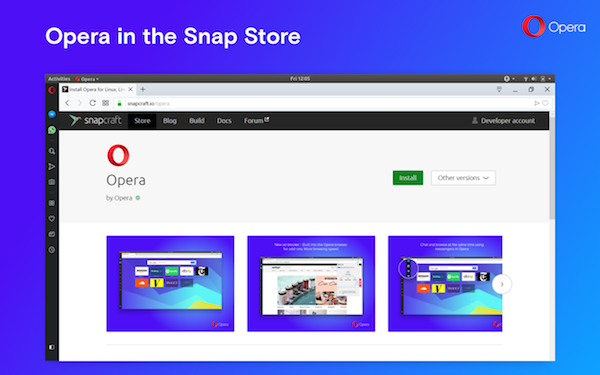
The Surface Go is here, and people just don't know what to make of it
After much excited build up, Microsoft launched its latest Surface device yesterday -- the Surface Go. While many have suggested this is Microsoft's attempt to compete with Apple iPad, there's no getting away from the fact that this is a budget Surface, and compromises have been made.
If you're not sure whether this is the tablet for you, you may well start to seek out Surface Go reviews -- and you'll find that they are an incredibly mixed bag of opinions. It looks as though the Surface Go could be one of Microsoft's most divisive products ever. Is it "painfully slow" or "practically perfect"?

Motorola Moto Z3 Android smartphone is a Verizon exclusive with optional 5G upgrade
5G is the future, but it is certainly not the present. For now, 4G LTE will have to be good enough as we await the major cell carriers to roll out 5G networking across the United States. Once this blazing-fast next generation wireless standard becomes ubiquitous, it won't just revolutionize mobile internet, but it can potentially disrupt home internet too. Yes, the future may spell trouble for traditional cable-based ISPs.
Motorola and Verizon seem anxious to sell 5G phones to consumers, as the upcoming Moto Z3 -- which is exclusive to the carrier -- shows us. No, the Android smartphone does not contain a 5G radio -- it is still a 4G phone. However, Motorola promises a future "Moto Mod" that will snap onto the rear and enable Verizon 5G wireless connectivity. Since this radio dongle will likely drain the device’s battery, it contains its own 2000 mAh battery. The phone has the typical internals that you'd expect -- a Snapdragon 835 processor and 4GB of RAM.

Satechi launches Aluminum USB Type-C UHS-II Micro/SD Card Reader
More and more laptops are being manufactured without SD card slots. For many consumers, this isn't a problem. For others, such as photographers, it is a huge pain point. Thankfully, adding a card reader to a notebook or desktop is as easy as plugging in a USB adapter.
Of course, these days, laptop manufacturers are also forgoing USB Type-A ports, making existing adapters incompatible without a USB-A to USB-C dongle. Alternatively, you can simply buy a USB-C card reader, and today, Satechi launches an absolutely gorgeous such product. Its new reader, which is made with aluminum, supports both SD and micro SD cards with up to UHS-II speeds. It doesn't just work with laptops, but tablets and smartphones too.
Apple kills off its app affiliate program
Apple has announced that it is removing apps from its affiliate program. The change means that people will no longer receive commission for iOS and Mac apps.
Having once enabled sites to earn 7 percent commission for app sales, Apple then dropped this to just 2.5 percent. As of October 1, no commission will be paid at all as Apple says the App Store does a good enough job of increasing app discovery.
Facebook API changes mean you can no longer cross-post from Twitter
Twitter users can no longer automatically cross-post to Facebook. The restriction has come about after Facebook made changes to the way third parties are able to make use of its APIs.
It means that Twitter users who have connected their Facebook account to make it easier to post the same content on both services via Facebook Login can't have their tweets automatically posted to Facebook. The -- rather unsatisfactory -- solution from Twitter is simply copy the URL of a tweet, and this can then be manually posted to Facebook.

Preempt allows organizations to detect and block hacker reconnaissance tools
Increasingly cybercriminals are using their initial attacks to probe systems and look for other vulnerabilities or network resources that they can later exploit.
Threat detection platform Preempt is launching new capabilities that allow enterprises to prevent lateral movement and unauthorized domain access due to the misuse of network credentials in reconnaissance tools.

Opera web browser for Linux available as a Snap -- install on Ubuntu, Fedora, Mint, and more!
There is no shortage of web browsers for Linux. Two of the most popular browsers -- Google Chrome and Mozilla Firefox -- are easy to install and work quite brilliantly. Another fairly popular option is available too -- Opera. All three aforementioned browsers are cross-platform, making them great options not only for Linux, but Mac and Windows too.
Today, the Opera web browser for Linux becomes available as a Snap. If you aren't familiar, this means it is packaged for installation on any Linux distribution that supports Canonical's Snap format. This has the benefit of helping the developer, as they don't have to waste resources with multiple packaging options.

Carbon Black launches real-time security ops solution
Security and operations teams often have no reliable way to assess the current state of endpoints across their enterprise.
Lack of visibility is a major concern which leads to greater risk of a breach and a lack of information to take appropriate action after a problem occurs.

SMBs rank network security as top concern
SMBs are just as likely to be attacked by cybercriminals as larger businesses, yet they lack the budgets and resources to secure their systems and deal with the aftermath of an attack.
It’s not surprising then that a poll of more than 350 SMBs worldwide by cybersecurity specialist Untangle finds that firewall and network security are rated as the top security concerns, particularly as more systems move to the cloud.

Massive router hack used to spread CoinHive cryptomining script
Researchers at Trustwave have uncovered an attack on tens of thousands of MikroTik routers which is being used to embed CoinHive cryptominer scripts in websites.
A surge in CoinHive actvity in Brazil at the start of this week alerted researchers that something was happening. Further investigation showed that MicroTik devices were at the root of the problem and all were using the same CoinHive site key.

Spotify removes numerous Alex Jones podcasts, deeming them 'hate content'
Spotify is the latest company to come down on Infowar's Alex Jones. The music streaming service has taken down multiple several episodes of The Alex Jones Show for violating its policies on hate speech.
The removals come after Alex Jones was hit with another strike by YouTube for policy violations, and after Facebook also took action against him.
2FA SNAFU led to Reddit security breach in which user data was stolen
Reddit has revealed details of a security breach that enabled a hacker to gain access to private messages, usernames and encrypted passwords. The self-proclaimed "front page of the internet" is undertaking an investigation and taking steps to improve security.
The attack took place between June 14 and June 18 this year, and the perpetrator was able to access "all Reddit data from 2007 and before including account credentials and email addresses", the site said in an announcement. The breach was made possible after the attacker beat SMS-based two-factor authentication and compromised several employee accounts.

Avast responds to CCleaner controversy
Yesterday I wrote about why people might want to skip the latest version of popular system cleaning tool CCleaner. This isn’t the first time that I, and other long-time users, have expressed dissatisfaction in how the program is evolving under Avast.
Following yesterday’s piece, the Avast-owned Piriform -- CCleaner’s maker -- contacted me to clarify the situation. This is what the company had to say.

Leaked report shows Google plans a censored search engine for China... but China says otherwise
A leaked document suggests that Google is planning on making a return to China, launching a censored version of its search engine to comply with strict Chinese laws.
Going by the codename of Dragonfly, the project has been in the works since 2017 and has led to the creation of China-specific Android apps with the internal testing names Maotai and Longfei. But while the documents and people familiar with the matter say that the launch date could be just six to nine months away, China says the reports are not true.

The future role of AI in fact checking
As an analyst, I’d like to have a universal fact checker. Something like the carbon monoxide detectors on each level of my home. Something that would sound an alarm when there’s danger of intellectual asphyxiation from choking on the baloney put forward by certain sales people, news organizations, governments, and educators, for example.
For most of my life, we would simply have turned to academic literature for credible truth. There is now enough legitimate doubt to make us seek out a new model or at a minimum, augment that academic model.


